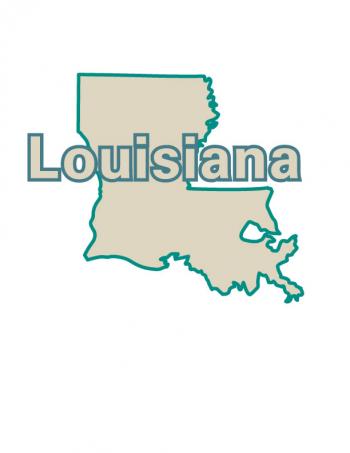
Louisiana Spotlight: Packed Senate race could change strategy
BATON ROUGE — When Republican U.S. Sen. David Vitter announced he wouldn’t seek re-election after his failed bid for governor, it quickly became clear a large number of people had eyes on the seat. But no one predicted the list of contenders would balloon to two dozen.
As many as half of them could be viable candidates — because of name recognition, fundraising prowess or ability to self-finance a campaign. And with 24 names on the Nov. 8 ballot for the race, support from a small slice of voters could be all that it takes to leapfrog into the Dec. 10 runoff.
But how do you distinguish yourself to voters with 23 opponents, particularly when all candidates regardless of party run against each other on one ballot?
Among the Republican contenders are U.S. Rep. Charles Boustany, former U.S. Rep. Joseph Cao, white supremacist David Duke, U.S. Rep. John Fleming, state Treasurer John Kennedy, retired Air Force Col. Rob Maness and New Orleans economic development official Abhay Patel.
Democrats include New Orleans lawyer Caroline Fayard, Public Service Commissioner Foster Campbell and Lafayette oil and gas businessman Josh Pellerin. Former state Alcohol and Tobacco Control Commissioner Troy Hebert is running without a party affiliation.
As they jockey for support, candidates are trying to tap into trends they think will work to draw voters. But with so many people in the race, they’ve found themselves competing with similar messages.
“Outsider” status has become a sort of cachet, with many Senate contenders trying to don the label — even long-time politicians who have spent years, in some instances decades, in office.
As he signed up for the race, Fleming described himself as having “battled against” leaders in the Republican Party and having a track record similar to GOP presidential nominee Donald Trump.
“Washington needs a change,” said the congressman who’s been in office since 2009.
Fayard declared herself “very tired of career politicians” and the status quo, saying she believes many voters are, too. Maness, the third-place finisher in the 2014 Senate race, touted his 32-year military career, saying Washington politicians have shown no leadership on national security.
Kennedy, a statewide elected official for 16 years, said he’s not part of the political “club,” highlighting his very public feuds with governors over the years.
Pellerin said Louisiana needs to stop electing the same people if voters want different results in Washington. Like Pellerin, Patel noted he was one of the few Senate candidates who hadn’t previously run for or held elected office.
“We need someone with a fresh perspective,” Patel said.
Duke is the epitome of a political outsider these days. The former Ku Klux Klan leader served one term as a state lawmaker more than two decades ago and was spurned in all other efforts to win elected office. But he said the country “has moved in my direction,” suggesting Trump supporters are embracing Duke’s vision for America.
Hebert, a former state lawmaker, positioned himself as the only “truly independent candidate” because he won’t take campaign contributions. But he also talked of his “long career in politics,” saying that shows his qualifications to be a senator.
Campbell, who has the high-profile backing of Democratic Gov. John Bel Edwards, also sought to have it both ways. A state senator for more than 25 years before his election to the PSC, Campbell touted his long record on issues while also eschewing the establishment by railing against “special interests” and declaring himself “not in anybody’s shirt pocket.”
Boustany, in his sixth term in Congress, was the only major GOP contender to welcome his political tenure without caveat. He talked of legislation he passed as a congressman.
“People are tired of the empty rhetoric and words. They want results,” he said.
While both Republicans and Democrats are seeking to brand themselves as outsiders, a theme among Democratic candidates is the downplaying of party classification — an obvious recognition that Louisiana has only elected one Democrat to statewide office since 2008.
One point of near unanimity for candidates running for the Senate seat: They’re all distancing themselves from David Duke.
Melinda Deslatte covers Louisiana politics for The Associated Press. Follow her at http://twitter.com/melindadeslatte
- Log in to post comments
